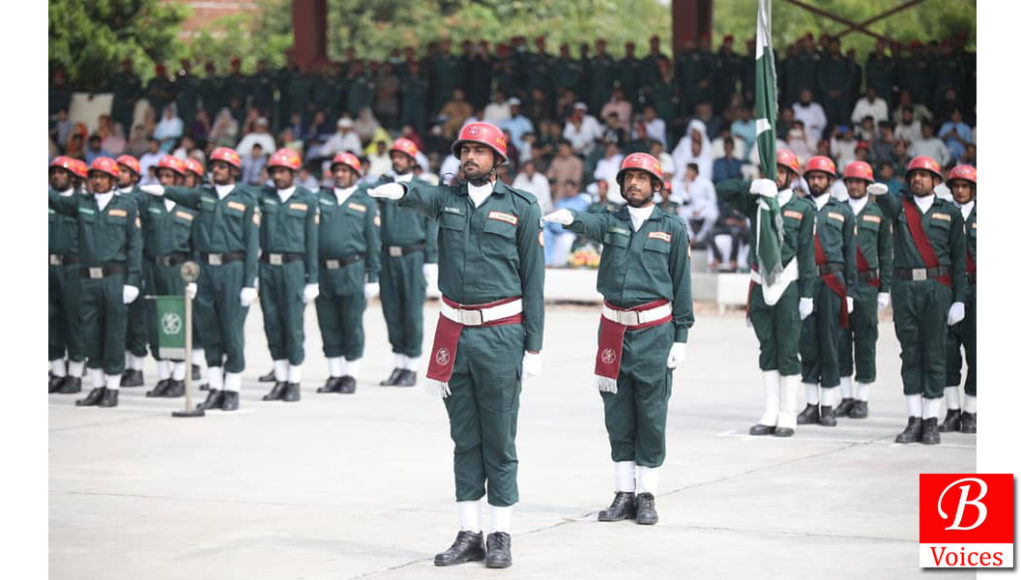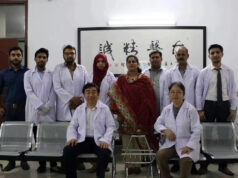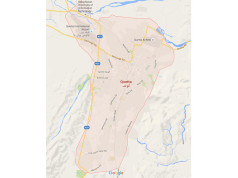Adnan Aamir
On 30th September the weather in Lahore was unusually pleasant when cadets were preparing for the 30th passing out parade of emergency rescue services academy. Among the 201 trainees, 96 were from Balochistan. These trainees were standing between the stands and the stage of the parade ceremony because they were the center of the attention. Chief Minister Balochistan was there to witness the passing out of first batch of rescuers who will start saving lives on highways of Balochistan by the end of October.
These trainees were selected from the districts which Quetta-Karachi highway cuts through. Belonging to underprivileged families, these trainees will man the emergency medical centers on highways in their districts. They were selected for these jobs after government of Balochistan approved the establishment of the Medical Emergency Response Centers (MERC) project earlier this year.
Highway Accidents vs Terrorism
According to a detailed study conducted by this scribe, in the last 10 years, five times more people died in highway accidents as compared to suicide blasts. During this period, 488 people lost their lives in 31 suicide bomb blasts in Balochistan, while 2,238 people lost their lives in 3,797 highway accidents. Deadly highway accidents result in loss of precious lives almost on weekly basis. There are two main reasons for staggering death toll in highway accidents. First is the narrow single-lane highways of Balochistan without dividers, where collisions of vehicles take place during unsafe overtaking. Secondly, the lack of timely emergency medical care to the victims of the accidents. Resultantly highway accidents have become a deadly killer in Balochistan. In this context, Balochistan’s cabinet approved the MERC project when it was convinced that highway accidents claim more lives as compared to terrorism in Balochistan.
Much needed lifesaving project for highways of Balochistan
Comprising at the value of Rs. 3.41 billion this project will provide emergency medical aid to the victims of highway accidents in Balochistan. 25 emergency centers will be established on 8 highways of Balochistan, which will provide emergency medical aid to highway accident victims. These centers will be fully equipped with ambulances, fire extinguishing equipment, and the latest rescue machinery. The first batch will start working on Quetta-Karachi highway, whereas the next batch will arrive in Emergency Services Academy by the end of the next week for their training. People’s Primary Healthcare Initiative (PPHI), a non-profit company funded by government of Balochistan to look after basic healthcare in the province, is running the MERC project.
Missing role of the federal government
National highways in Pakistan are a federal subject. These highways are built and regulated by the federal government. Therefore, technically it’s the responsibility of the government in Islamabad to take steps to control the increasing death toll on highways of Balochistan. However, just like many other issues, Federal government has blatantly ignored Balochistan on this matter. Despite repeated demands by civil society in Balochistan to upgrade the highways of Balochistan in dual carriageways, federal government and its organ National Highway Authority (NHA) were unmoved. Not only federal government turned down all proposals to dualizes Quetta-Karachi highway but it also did not expand the presence of national highways and Motorway Police (NH&MP). Currently, NH&MP only covers 515 Km out of 4,565 KM long national highways in Balochistan.
In these circumstances, the cash-strapped province of Balochistan used its own kitty to start the MERC project because the PTI government in center did not care about loss of life on highways of Balochistan. This is one of the very few remarkable decisions of incumbent provincial government of Balochistan. Although, there are plenty of justifiable reasons to criticize Balochistan Awami Party (BAP) government in Balochistan by the establishment MERC project was indeed a pro-people decision.
Rolling out Rescue Services in cities of Balochistan
During the passing out parade, it was revealed to this scribe that rescue 1122 service operates in all 36 districts of Punjab. Whereas emergency services do not exist in any city of Balochistan. A few years back, Provincial Disaster Management Authority (PDMA) trained 34 rescuers but laid them off after three years. In a classic case of mismanagement, today millions worth of emergency rescue service equipment is lying idle in warehouses of PDMA.
After the successful passing out of the first batch of MERC trainees, PPHI has been asked by the provincial government to roll out emergency services in major cities of Balochistan starting from Quetta. Although, this is a good decision by provincial government but it should not divert the attention of MERC from its core purpose of providing emergency healthcare on deadly highways of the province.
The way forward
The governance system in Balochistan is flawed and therefore vested interests within the government apparatus do not want the success of this project. Reportedly, less than 10 percent of the approved budget of MERC has been released so far to PPHI, which is executing the project. Despite approval from the cabinet the people with vested interests are delaying the release of funds for this project. They prefer their petty personal interests over the previous lives, which are lost in highway accidents on regular basis. Therefore, CM Balochistan Jam Kamal has to protect MERC project from influential people within his own government.
Likewise, the Federal government also needs to make its contribution to preventing loss of lives in highway accidents. Upgradation of national highways will take a lot of time but what NHA can easily do on urgent basis is to redesign all the sharp turns on highways of Balochistan, which cause accidents. This will not require much funds and time. It only requires the resolve of the federal government, which is clearly missing in this case.
Originally published in Naya Daur
Share your comments!








